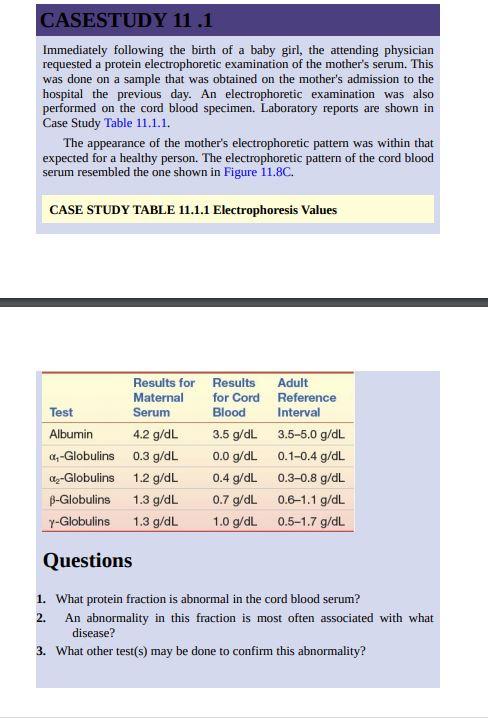Expert Answer

1.Decreased total protein may indicate.-Abnormal loss of protein from the digestive tract or the inability of the digestive tract to absorb proteins (protein-losing enteropathy)
- Kidney disorder called nephrotic syndrome
- Scarring of the liver and poor liver function (cirrhosis)
Increased alpha-1 globulin proteins may be due to:
- Acute inflammatory disease
- Cancer
- Chronic inflammatory disease (for example, rheumatoid arthritis, SLE)
Decreased alpha-1 globulin proteins may be a sign of:
- Alpha-1 antitrypsin deficiency
Increased alpha-2 globulin proteins may indicate a:
- Acute inflammation
- Chronic inflammation
(2)Decreased alpha-2 globulin proteins may indicate:
- Breakdown of red blood cells (hemolysis)
Increased beta globulin proteins may indicate:
- A disorder in which the body has problems breaking down fats (for example, hyperlipoproteinemia, familial hypercholesterolemia)
- Estrogen therapy
Decreased beta globulin proteins may indicate:
- Abnormally low level of LDL cholesterol
- Malnutrition
Increased gamma globulin proteins may indicate:
- Blood cancers, including multiple myeloma, Waldenström macroglobulinemia, lymphomas, and chronic lymphocytic leukemias
- Chronic inflammatory disease (for example, rheumatoid arthritis)
- Acute infection
- Chronic liver disease
(3) Some of the most common routine tests are:
- complete blood count (CBC)
- chemistry (basic metabolic) panel
- thyroid panel
- nutrient tests for levels of vital nutrients, such as iron or B vitamins
Some other tests that you may want include:-enzyme markers if you’re at risk for cancer or other conditions like liver cirrhosis, stroke, or celiac disease
- sexually transmitted disease (STD) tests if you have multiple sexual partners or a new partner


ليست هناك تعليقات:
إرسال تعليق